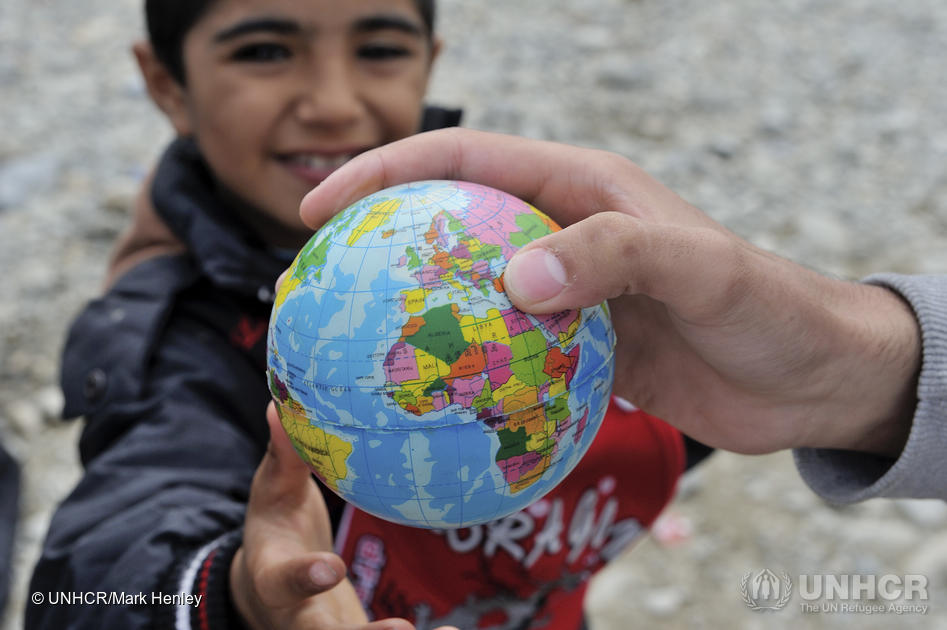
Member of Ismail Ibrahim’s family with a ball decorated as a globe that has been received at the Vinojug Reception Center just inside the Macedonian border from Greece. © UNHCR/Mark Henley
By Anaheh Ghookassian Khoygani in Ottawa, Canada
Last fall, a group of high school students from across Canada came together to discuss the issues facing refugees in Canada and globally. The conversation was guided by the Centre for Global Education in collaboration with UNHCR. Key outcomes from the dialogue are captured in a paper entitled the National Youth Dialogue: Student Partners in Action with Refugees Canada.
Three key issues emerged: namely, public perceptions on refugees shared amongst Canadians, refugees’ valuable experiences and Canada’s role in moving forward and creating positive change.
On public perception, the youth concluded that the myths and misconceptions surrounding refugees and asylum seekers, as well as the language used to refer to them, are critical factors that frame the conversations that negatively impact Canadians. The youth discovered that there is a lot of compassion within Canadian society. However, misinformation and fear-mongering prevail—often propagated in the media—and spread through communities, schools and institutions.
Moved by the refugees’ stories they heard from experts and refugees themselves, the youth recognized the value of highlighting the experiences and contributions of refugees and expressed the wish to see a change in the way refugee issues are introduced and taught in Canadian classrooms.
Beyond education, the youth believe that Canada can and should do more to help refugees, raising the importance of working together with the government at all levels. Additional recommendations have been put forth in the paper, including the need to support and provide additional funding to settlement agencies that help refugees.
To find out more, read the full paper: National Youth Dialogue: Student Partners in Action with Refugees Canada.





